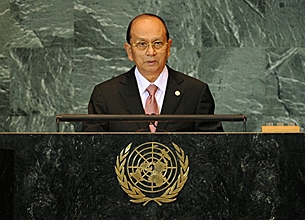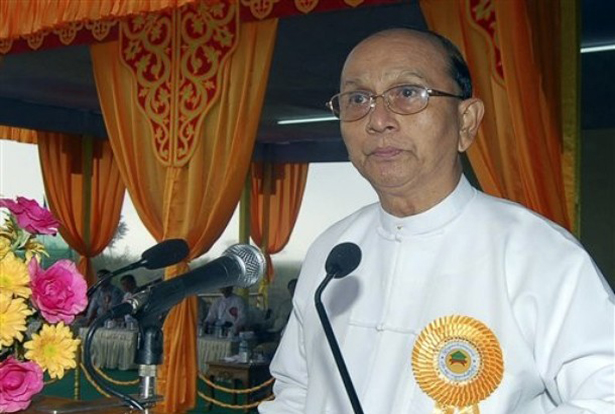As Burma’s Parliament prepares for its next session, the London based pro-democracy advocates, ‘Burma Campaign UK’, called on the international community to scrutinize Burma’s upcoming annual budget as a sign of its commitment to implement reforms that benefit the people.

Last year’s, President Thein Sein’s government allocated just 1.3 percent of the government budget to health, and just over 4 percent on education. Almost 25 percent was allocated to the military a figure many international human rights groups dispute including Burma Campaign UK in a media statement released last week.
“There is believed to be additional military spending outside the official accounts.”
Mark Farmaner, Director of Burma Campaign UK said.
“Thein Sein has promised reform and to prioritize development. This budget will be a test of how serious he is - there needs to be substantial increases in spending on health, education and agriculture, and major cuts in military spending.”
The Burma Campaign UK statement stressed the importance of a shift in military spending in the country, which faces endemic poverty, a chronic lack of infrastructure and a series of wars in ethnic areas, such as Karen and Kachin State.
“Thein Sein’s government has asked for more international support to tackle poverty, promote development, and build the capacity of government departments.”
The Burma Campaign UK in their media statement said they had pushed Britain to give more international aid to impoverished country, but warned.
“Support for increased aid to Burma could be undermined if the government continues to spend almost 20 times more on the military than it does on health.”
Burma Campaign UK noted decades of military rule Burma had turned the country into an economic and social wasteland.
 “Burma’s health, education and agriculture sectors have been neglected for decades. They need substantial upfront investment to build basic infrastructure and train professionals, in addition to a general long-term increase. Given the desperate state of health and education, the government should be laying out a plan for the next few years on how the balance of spending between health and education, and the military, will be reversed.”
“Burma’s health, education and agriculture sectors have been neglected for decades. They need substantial upfront investment to build basic infrastructure and train professionals, in addition to a general long-term increase. Given the desperate state of health and education, the government should be laying out a plan for the next few years on how the balance of spending between health and education, and the military, will be reversed.”
Mr Farmaner said the coming budget will be a real test of the Burma’s military dominated government commitment to making education and health programs a budget priority at the expense of the armed forces.
“If we see increases in health and education budgets of just one or two percent, and no significant reduction in military spending, it will raise real concerns about how serious Thein Sein’s government is about turning promises of reforms into concrete change.”
The Burma Campaign UK come March this year will be keeping a close watch on parliamentary proceedings to make sure President Thein Sein honours his promises to reform the welfare sector.
“The ability of Parliament to make significant changes to any proposed budget should also be watched closely. Constitutionally, the Parliament has very little power, but does have to approve the budget.”


